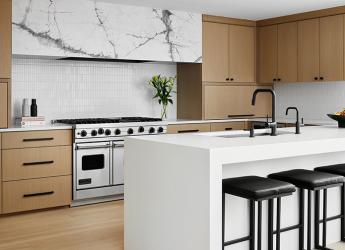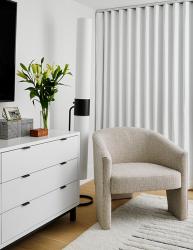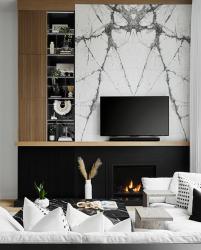Japandi One of the newest additions to the interior design world, Japandi focuses on simplicity, natural elements and comfort. It combines elements of both Japanese and Scandinavian (Scandi) interior design to create spaces with optimal functionality and rustic minimalism.
Hygge vs Wabi-Sabi If you enjoy reading about interior design, you’re sure to have come across the notion of “hygge,” or the Scandinavian design principle that embraces coziness, making your home a sanctuary built for your personalized comfort. The Japanese have their own design philosophy called “wabi-sabi,” or the idea that there is beauty in imperfection, especially in the home. When the two design doctrines combine, they produce easygoing, sophisticated interiors.
Comfort Meets Class Scandinavian design could easily be described as informal, highlighting warmth and comfort above all things. Japanese design often tends to lean toward sleekness, emphasizing a sense of cleanliness and sophistication. In Japandi design, it’s important to blend the two together to get the best of both worlds. Warm textures and soft pieces, such as understated blankets, pillows and rugs, add extra comfort while sleek lines and clean surfaces help maintain a Zen-like experience in your space.
Muted Colors Because this design style emphasizes calmness, you won’t find any jarring colors in these interiors. Muted, earthy tones of beige, brown and gray keep a peaceful palette without seeming sterile. Add in hints of pale green into the space to strengthen your connection with nature.
One with Nature Japandi brings nature to the forefront, as natural infusions indoors help create serenity. One of the simplest ways to bring the outdoors in is with house plants. (Tending plants has also been shown to improve certain aspects of mental health.) Not a green thumb? Incorporate natural materials like bamboo or unfinished wood instead.
Not Sparse…Intentional. If you’ve been thinking about decluttering your space, now’s the time! Reducing clutter is key in Japandi design; this is easier said than done, of course, as many live busy lives in active households. If you can’t throw away all unwanted items or have too many necessities to count, opt for wooden or woven baskets with plenty of storage space. This will help keep clutter out of sight and promote focused, clean living. Be intentional about buying furniture as well; instead of choosing cheap pieces that work for a time, focus on finding timeless pieces that will work for many years. Japandi design relies heavily on craftsmanship, and using pieces for a long time also plays into its tenets of sustainability as well.











